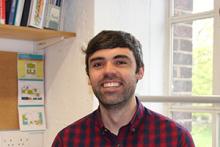
Brendan is a human geographer with an interest in the social, cultural and environmental implications of contemporary lifestyles. In his current role he employs mixture of qualitative research methods (e.g., interviews, ride-alongs and participant observation) to understand how car ownership and use is continually shaped by the material (e.g., cars, roads, petrol stations and petrol) and expressive (e.g., identities, meanings, signs, emotions and desires) dimensions of driving. Drawing together these insights his aim is to understand the opportunities and challenges of decreasing carbon emissions associated with passenger cars by encouraging shifts to longer lasting, lighter and shared vehicles.
Brendan holds a Bachelor of Recreation Management and a Masters of Applied Science from Lincoln University, New Zealand. From 2008-2011 he worked as a social scientist on energy, climate change and natural hazards at GNS Science in New Zealand.
He completed a PhD in Human Geography between 2011-2015 under the auspices of a Commonwealth Scholarship in the Department of Geography, Durham University, UK. His thesis explored how commuting habits and experiences might be rethought in the context of existing debates on behaviour change, climate change and mobility.
Brendan joined the Use Less Group in 2015, where he currently holds a Research Associate position on cars and society.
Publications prior to joining the Use Less Group - Journal Articles
- Becker, J. S., Taylor, H. L., Doody, B. J., Wright, K. C., Gruntfest, E. & Webber, D. (2015). A review of people’s behavior in and around floodwater. Weather, Climate, and Society. 7(4), 321-332.
- Doody, B.J., Perkins, H.C., Sullivan, J.J., Meurk, C.D. & Stewart, G.H. (2014), Performing weeds: Gardening, plant agencies and urban plant conservation. Geoforum, 56, 124-136.
- Doody, B.J., Sullivan, J.J., Meurk, C.D. Stewart, G.H., & Perkins, H.C. (2010). Urban realities: the contribution of residential gardens to the conservation of urban forest remnants. Biodiversity and Conservation, 19(5), 1385-1400.
